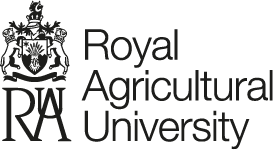A participatory, farmer-led approach to changing practices around antimicrobial use on UK farms
Morgans, Lisa C, Bolt, Sarah, Bruno-McClung, Elizabeth, Van Dijk, Lisa, Escobar, Maria P, Buller, Henry J, Main, David C J and Reyher, Kristen K (2020) A participatory, farmer-led approach to changing practices around antimicrobial use on UK farms. Journal of Dairy Science, 104 (2). ISSN 1525-3198
|
Text
Lisa Morgans Farmer Action Groups accepted paper submission Sept 2020.pdf - Accepted Version Available under License Creative Commons Attribution Non-commercial No Derivatives. Download (732kB) | Preview |
Abstract
Farmer-led, participatory approaches are being increasingly employed in agricultural research with promising results. This study aimed to understand how a participatory approach based on the Danish Stable Schools could help to achieve practical, farmer-led changes that reduced reliance on antimicrobials in the UK. Five facilitated Farmer Action Groups comprising 30 dairy farms across South West England met on farm at regular intervals between 2016 – 2018 and worked collaboratively within their groups to discuss how to reduce antimicrobial use. Qualitative data from group discussions and individual semi-structured interviews were collected and analysed using thematic analysis to explore how the approach helped farmers address and deal with changes to their on-farm practices. Facilitator-guided reviews of antimicrobial use and benchmarking were carried out on each farm to assess any change in usage and help farmers review their practices. The pattern of antimicrobial use changed over the 2 years of the study with 21 participating farms reducing their use of highest priority critically important antibiotics (6 farms were not using any of these critical medicines from the outset). Thirty practical action plans were co-developed by the groups with an average implementation rate of 54.3% within a year. All assessed farms implemented 1 recommendation, and many were still ongoing at the end of the study. Farmers particularly valued the peer-to-peer learning during farm walks. Farmers reported how facilitated discussions and action planning as a peer group had empowered them to change practices. Participants identified knowledge gaps during the project, particularly on highest priority critically important antibiotics where they were not getting information from their veterinarians. The study demonstrated that facilitation has a valuable role to play in participatory approaches beyond moderating discussion; facilitators encouraged knowledge mobilization within the groups and were participants in the research as well. Facilitated, farmer-led, participatory approaches that mobilize different forms of knowledge and encourage peer learning are a promising way of helping farmers to adapt and develop responsible practices.
| Item Type: | Article |
|---|---|
| Keywords: | participatory, farmer-led, antimicrobial, peer learning |
| Depositing User: | Professor David Main |
| Date Deposited: | 22 Sep 2020 08:44 |
| Last Modified: | 19 Jan 2026 13:16 |
| URI: | https://rau.repository.guildhe.ac.uk/id/eprint/16413 |
Actions (login required)
 |
Edit Item |

